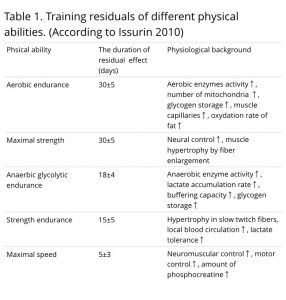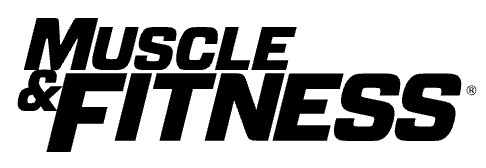Residual Training Effects And Over “Conditioning”
Folks in this field often talk about “bang for your buck” ideas and programs in regards to training athletes. Exercises and methods that matter, stuff that transfers and ultimately wins games. It’s a great conversation to have as it forces us as coaches to look at things a little more critically and not just do stuff for the sake of doing it. This way of thinking can break us out of the bench more, squat more, run em into the ground philosophy that has existed in the world of strength and conditioning for far too long.One idea that I don’t think is discussed or analyzed enough in this field is the concept of residual training effects. Namely, in regards to the world of “conditioning.” This effect was popularized by Dr. Vladimir Issurin, another Soviet gem who is best known for his work with block prioritization. In 2010 he published a study on certain physical qualities and their stickiness within a group of athletes. What he found is that some qualities can see performance drop offs in the matter of a week without training them, while others can be held at a maintenance position for about a month without any direct work.

Aerobic endurance can stick with your athletes for a month without training. Maximal speed can diminish in a week.
I’m no sports scientist but I’ll take the lessons learned from the white coats that came before me and try and use them practically. I have tried to do some degree of block prioritization with athletes before, but have found its application challenging for the group that I train (high school team sport athletes). Basically, the concept is that you want to train different physical qualities at different intensities and volumes throughout the year depending where you are in the sport season. Instead of training everything together, you train different “blocks” to harness their effects and peak for a certain event or meet. This concept works tremendously on paper and in real time with track and field or other sports specialists.
The concept gets a little murkier when dealing with team sport athletes that have other demands besides one specific skill like throwing a hammer or running 200 meters. Still, Issurin’s work can be extremely valuable for sport coaches when addressing the idea of residual training effects. Namely, why the heck are folks slowly conditioning their athletes into the ground when they should be sprinting and jumping with much more frequency?
For most team sports, power is king. It could be a 40 inch vert in volleyball, 450 foot bombs in baseball or pushing the ball up the court in 3 steps in hoop. The “wow” effect in sport is a speed and power driven animal. Yet, we still see coaches placing a premium on this antiquated notion of needing to do long slow distance work for sports that don’t live in that universe (baseball anyone?)
The occasional salt and peppering of some conditioning work can have some value for the team sport athlete. If the squad is in need of a kick in the keister after a bad loss or for violating team rules then go for it, get your troops right. But to run JUST to run-I don’t get it. The team should be in shape before entering the competitive season and according to Issurin once they are in shape it doesn’t take a lot to keep them there.
Just think of it this way. Skill set aside. What would you want as a team sport coach. A fresh powerful, explosive group of athletes or a fatigued, slow, conditioned bunch? You don’t need to have a PhD like our friend Vladimir to figure out that one. Get your squad in shape before the competitive season, practice at a game pace and you will keep them there the whole year!
Daily conditioning sessions are simply going to over fatigue the players, get them dreading practice and could potentially set up an overuse injury. The pros seem to have it figured out to some degree. Bill Belicheck isn’t having Tom Brady run 10 100’s during a practice and Lebron isn’t mindless running line drills till he can’t feel his legs. You can work hard AND smart. Focus on performance, learn from Issurin, feel better going into competition and win some games!


